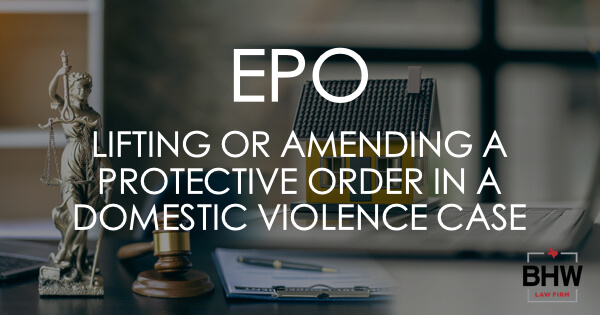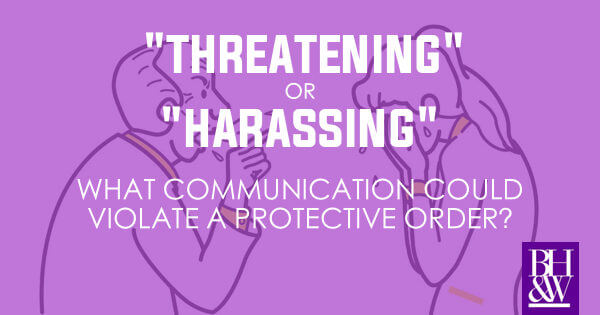 This week, the Texas Court of Criminal Appeals released Henley v. State. In a 4-3 decision the divided court held that the defendant was not allowed to offer “defense of a third party” as a legal argument in his assault case, because it “was not material to, nor probative of, any fact that was of consequence to the determination of this action.”
This week, the Texas Court of Criminal Appeals released Henley v. State. In a 4-3 decision the divided court held that the defendant was not allowed to offer “defense of a third party” as a legal argument in his assault case, because it “was not material to, nor probative of, any fact that was of consequence to the determination of this action.”
Henley v. State (Tex. Crim. App. 2016)
Henley was Charged with Domestic Violence in Tarrant County and Offered a “Defense of Others” Argument at Trial
Mr. Henley was charged with misdemeanor assault causing bodily injury to a family member (domestic violence). Henley was alleged to have pulled his ex-wife out of her car by her hair, punched her in the face several times, and hit her head against the concrete driveway.
At trial, Henley asserted a “defense of others” defense, which is an extension of the traditional self-defense argument. The rationale he provided for this defense was that he did not think his ex-wife was a fit parent because her new husband had sexually and possibly physically assaulted the children. The mother’s new husband was not present during the altercation and did not pose any immediate threat, but Henley tried to argue nonetheless that he was defending his children from being exposed to a physically and sexually abusive environment.
The trial judge did not allow Henley to present the defense of others claim and he was convicted. The 2nd District Court of Appeal (Fort Worth) reversed the trial court, holding that Henley should have been allowed to present his defense. The State appealed to the Court of Criminal Appeals.
What is the Standard to Assert Defense of a Third Party?
To claim defense of a third person, a defendant must reasonably believe his intervention was immediately necessary to protect the third person from the threat of force.
The question in this case was not, “is defense of a third person an effective defense when considered by the jury?” Rather the question was “should the defendant be allowed to bring that defense at all under these facts?”
A Divided CCA Holds that the Trial Judge Did Not Err in Denying Henley the Ability to Raise Defense of a Third Person
The slim majority said no,. Henley should not be able to bring this defense because his aim was not to offer material or probative evidence, but rather to introduce evidence of how bad of a mother. Henley’s ex-wife is, and perhaps try to finagle a jury nullification. The majority saw Henley’s attempted defense as nothing more than an attempt to circumvent the judicial and evidentiary process and try to make an emotional appeal to the jury rather than a factual one.
The dissenting judges (Keller, Hervey, and Newell) argued that the defense should have been allowed because anything thing that is of consequence to the determination of the action more probable or less probable than it would be without the evidence should be deemed relevant and therefore admissible. Further, the question of whether Henley’s defense claims were reasonable belonged to the jury not the judge. It was the jury who should decide if Henley, in fact, acted reasonably on that day in question.
What are the Implications of this Holding for the Defense of Third Person Claim in Texas?
This case demonstrates that Defense of a Third Person is not as easy as simply claiming it. There must be evidence to show that the defense is reasonable. The evidence must show that the “intervention was immediately necessary to protect the third person from the threat of force” or it could be disallowed by the trial judge. The valid defense of others is still viable; as viable as it ever was. It simply must fit the facts.










